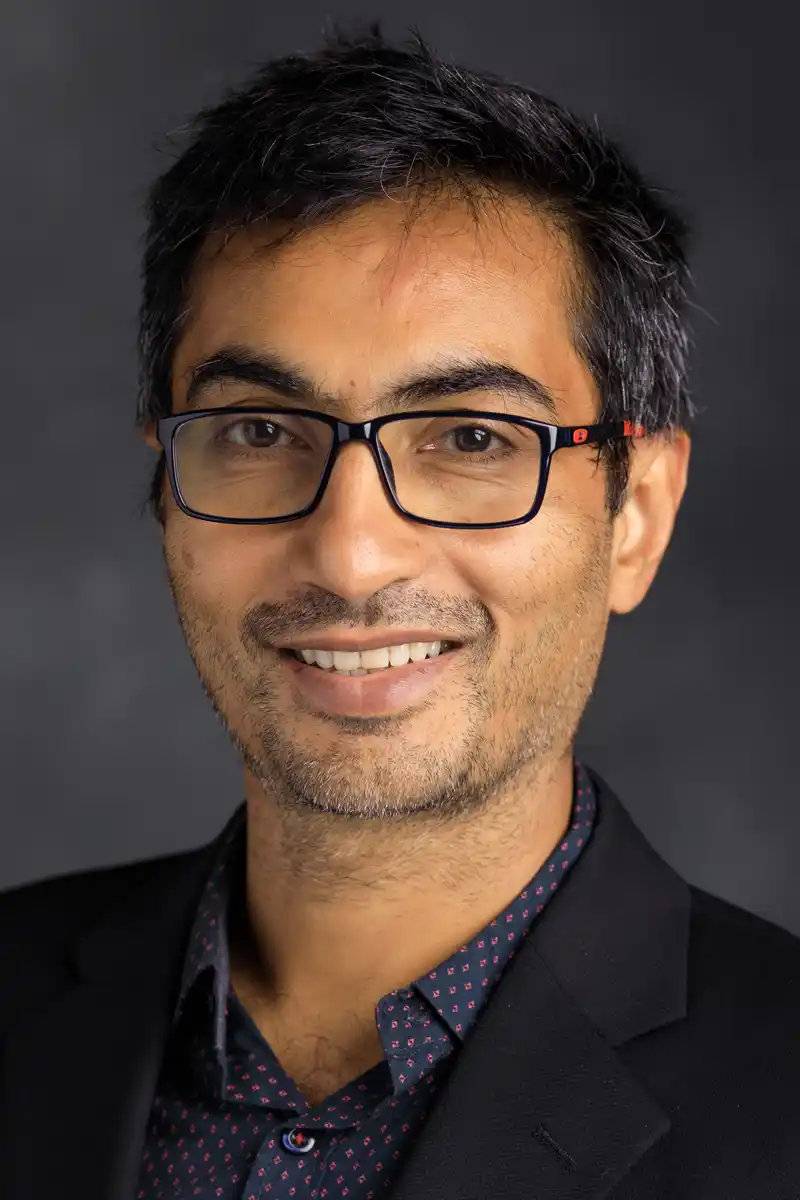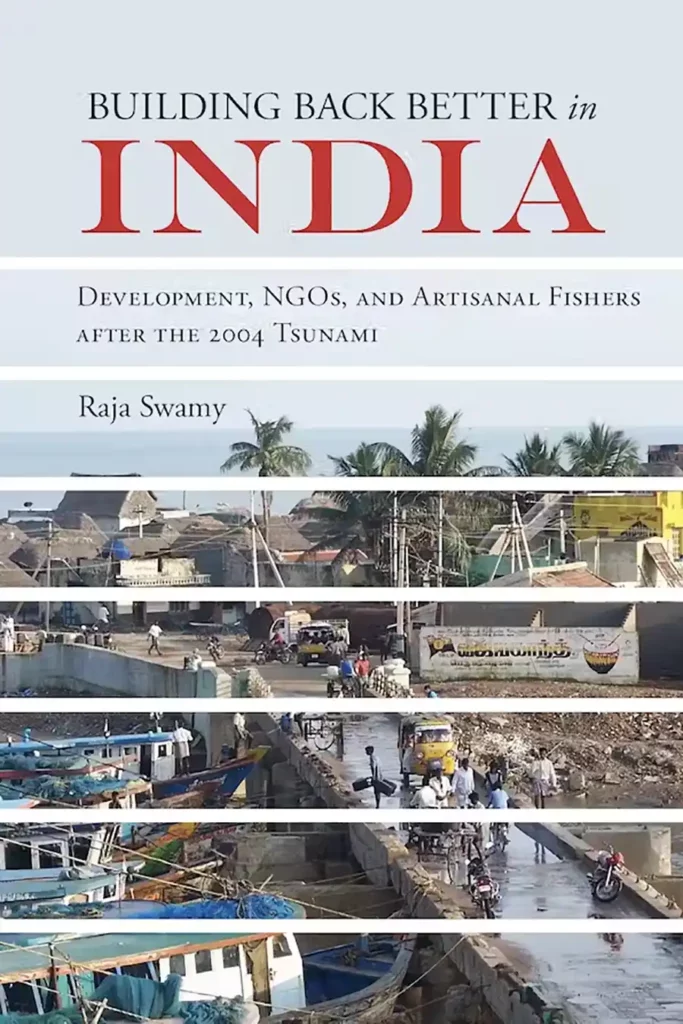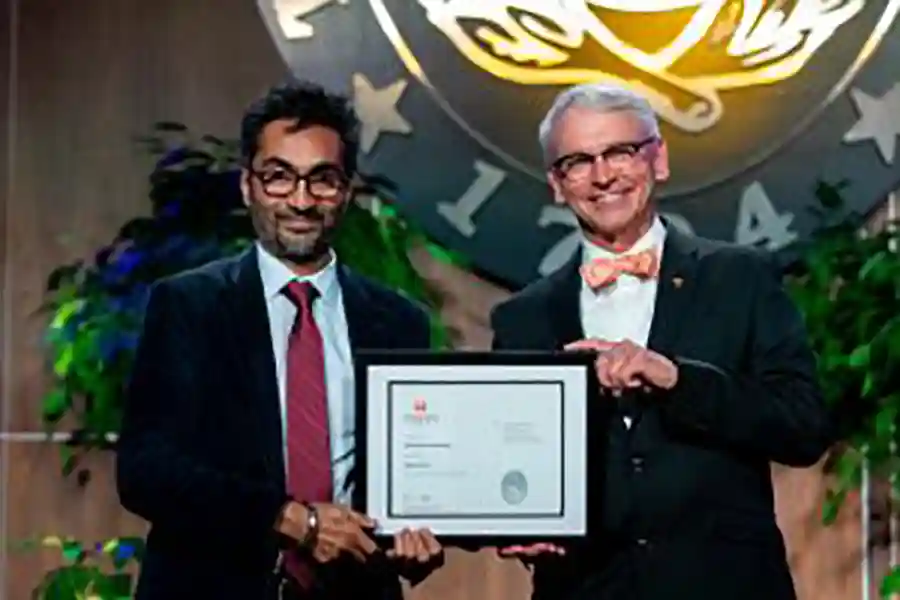Swamy, Raja

Raja Swamy
Associate Professor | Cultural Anthropology
I am a social anthropologist with an interest in the political economy and political ecology of natural disasters. My recently published book Building Back Better in India: Development, NGOs, and Artisanal Fishers after the 2004 Tsunami (University of Alabama Press, NGOgraphies: Ethnographic Reflections on NGOs Series, 2021) investigates the impact of the 2004 Tsunami on economic development priorities in India’s Tamil Nadu state. Exploring the contradictory outcomes of humanitarian agendas subordinated to the demands of a World Bank-financed and state-led reconstruction project, this work attempts to bridge the gap between political ecology and disaster studies by drawing upon rich ethnographic studies of displaced and resistant artisanal fisher communities thriving on the margins of India’s globalizing economy. My theoretical engagement with the ambiguous terrain of humanitarian “soft power” draws upon empirical data compiled on coastal land use, the contours of relocation, and the effects of relocation on affected communities. I seek to outline through this work the contours of what I term a ‘critical disaster studies’ approach that prioritizes history, conflict, power and resistance in the study of disasters.

“This probing inquiry into regimes of non-governmental regimes of governance, and the neoliberalism embedded in modern philanthropy, should be required reading for anyone involved in disaster relief.”
—Raj Patel
“… With keen ethnographic insight, Swamy shows how fishers sustained their claim to coastal life and livelihood while transforming humanitarian gifts into assets. Challenging assumptions about its depoliticizing and disciplining effects, he argues for humanitarianism as a contested process that can reset the contours of economy and politics.”
—Ajantha Subramanian
“This rich, multi-level ethnography brings together a rich ethnography of a fishing community in India, with the largely separate literatures of humanitarianism, disaster studies and development studies …”
—Arjun Appadurai
“The book is a timely story of disaster capitalism in action.”
—E. Paul Durrenberger
Since 2017 I have been researching the complex politics of recovery in the aftermath of Hurricane Harvey in Houston, Texas. Funded by an NSF grant that brought together the collaborative energies of a team from the University of Tennessee, Knoxville, with one from Southern Illinois University, the project hones in on the impacts of Hurricane Harvey and its aftermath on communities of color. Black and Latinx communities living in Houston have had to contend with life in a city where polluting industries are disproportionately located in their neighborhoods, while their historic neighborhoods are further affected by gentrification-led urban development strategies. This study seeks to show how recovery strategies that prioritize economic growth above social welfare, intensify the power of the city’s industrial and real estate interests over the lives and futures of Houston’s poorer working class communities, rendering the latter more vulnerable to future disasters.
PRETTY HEADY STUFF
FROM RESILIENCE TO RESISTANCE
Raja Swamy moves from resilience to resistance in the struggle against exploitative development. With Scott Stoneman, host of Pretty Heady Stuff, a podcast that “features interviews with a variety of theorists, artists and activists from across the globe.”
Disaster Capitalism – interview on KKFI FM Radio, Kansas City
FROM RESILIENCE TO RESISTANCE
Listen to Raja Swamy’s interview on the radio program Economics for the People broadcast on Kansas City FM Radio 90.1 KKFI on October 26th, 2023. (Interview begins 29 minutes into the program)
In this podcast, our feature is an interview with Professor Raja Swamy about disaster capitalism. Why do capitalist responses to ostensible natural disasters seem to just make everything even worse?
More broadly my research looks into how neoliberal strategies of economic development bring to the fore ongoing struggles over the goals and meanings of economic development, democracy, citizenship and rights. I have published academic works on the role of NGOs and humanitarianism in disaster reconstruction, the political economy of water in the aftermath of a disaster, the contested meanings of vulnerability, ecologically unequal exchange, the humanitarian gift economy, and the uses of heritage tourism development as a disaster reconstruction strategy.
AAA BOOK FORUM
BUILDING BACK BETTER…
Listen to Dr. Raja Swamy contextualizing his new book in this our first Author Book Talk on, “Building Back Better in India Development, NGOs, and Artisanal Fishers after the 2004 Tsunami” (2021).
Courses Offered
- Anthropology of Global Inequality, Humanitarianism, Disasters, Political Anthropology, Theory and Method in Anthropology, Ethnographic Field Methods, Visiting Lecture Series – Violence (Fall 2017).
- Contact me if you’d like a syllabus for any of the above courses.
Awards and Recognitions
2022 Excellence in Advising Award.
Excellence in Advising is bestowed by the Office of the Chancellor and the Teaching Council of the Faculty Senate to honor outstanding work in advising.

Publications
Book
Building Back Better in India: Development, NGOs, and Artisanal Fishers after the 2004 Tsunami. Tuscaloosa, Alabama: University of Alabama Press. (2021)
Peer-reviewed Journal Articles & Book Chapters
- Swamy, Raja 2022. “Tranquebar—the Tsunami, Heritage Tourism, Power, and Memory in a South Indian Fisher Village.” Dialectical Anthropology.
- Swamy, Raja. 2021. “The Politics of the Humanitarian Gift Economy: Tamil Fishers and the 2004 Tsunami.” PoLAR: Political and Legal Anthropology Review 44 (2): 240–55.
- Swamy, Raja 2020. The cost of relocation: Water and fishers in post-tsunami Nagapattinam, South India. Research in Economic Anthropology, 40 (Anthropological Enquiries Into Policy, Debt, Business And Capitalism).
- Barrios, R., Swamy, R., Tran, T., Vargas, G., Martinez, I., & Sierra, M. 2020. Interpreting Catastrophe: An Examination of Houston’s Many Voices in the Aftermath of Hurricane Harvey.. International Journal of Mass Emergencies and Disasters, 38(1).
- Swamy, Raja 2018. Fishers, Vulnerability and the Political Economy of Dispossession and Reconstruction in Post-Tsunami Tamil Nadu. Research in Economic Anthropology 38 (Individual and Social Adaptations to Human Vulnerability).
- Swamy, Raja. 2017. Humanitarianism and Unequal Exchange. Journal of World-Systems Research 23 (2): 353–71.
- Swamy, Raja, and Prema Revathi. 2017. “Dispossession and Neoliberal Disaster Reconstruction: Activist NGO and Fisher Resistance in Nagapattinam, Tamil Nadu.” In Against Colonization and Rural Dispossession: Local Resistance in South and East Asia, the Pacific and Africa. Zed Books.
- Swamy, Raja 2014. The construction of risk and opportunity in economic development and humanitarian aid agendas, post-tsunami reconstruction. In Tranquebar and Beyond: Across cultural borders in a South Indian village in past and present, E. Fihl, A.R. Venkatachalapathy (Eds.), Orient Blackswan.
- Swamy, Raja 2013. Disaster Relief, NGO-led Humanitarianism and the Reconfiguration of Spatial Relations in Tamilnadu. In NGO-ization: Complicity, Contradictions and Prospects, Choudry, A., & Kapoor, D. (Eds.), Zed Books, London.
- Swamy, Raja 2013. Subaltern Studies. In Theory in Social and Cultural Anthropology: An Encyclopedia, McGee, R & Warms, R. (Eds.) SAGE.
- Swamy, Raja 2009. Post-Tsunami challenges: The fishing community and heritage tourism in Tarangambadi. Review of Development and Change, Vol. XIV, No.1&2, June-December 2009. Madras Institute of Development Studies, Chennai, India.
Education
Ph.D. 2011, Social Anthropology, University of Texas, Austin
M.A. 2004, Sociocultural Anthropology, Michigan State University
M.A. 2000, Educational Technology & Instructional Design, Counseling and Educational Psychology Program, Michigan State University